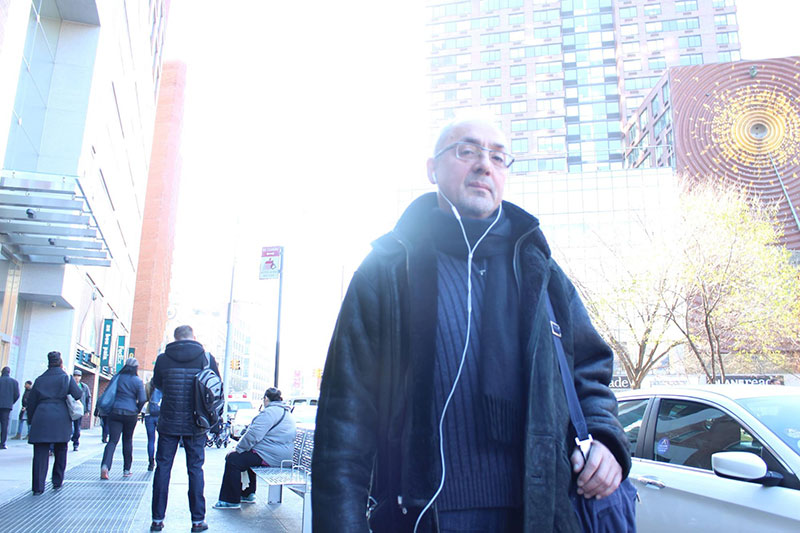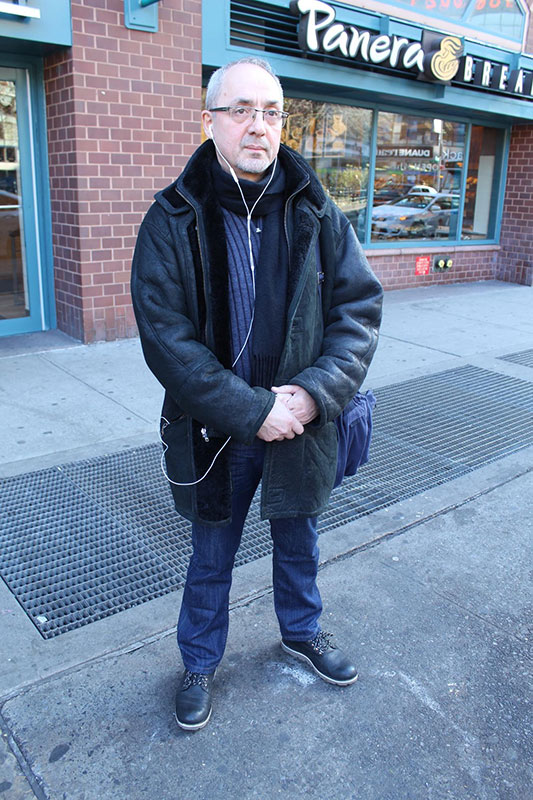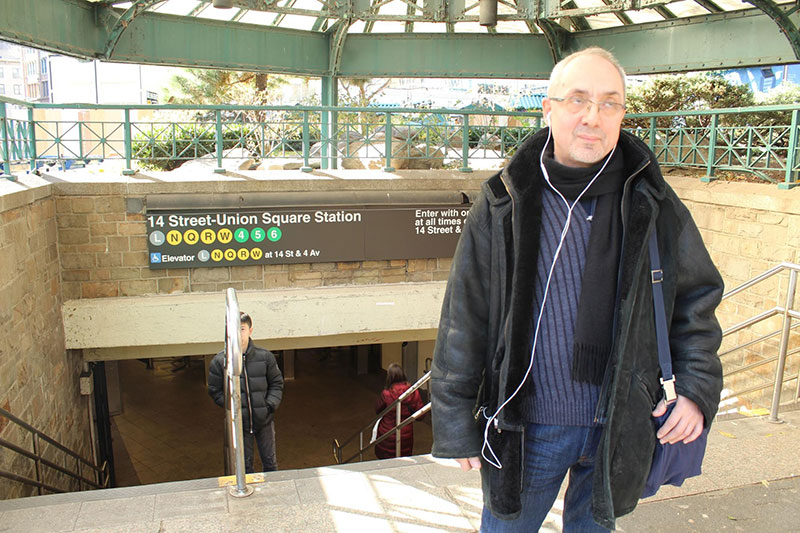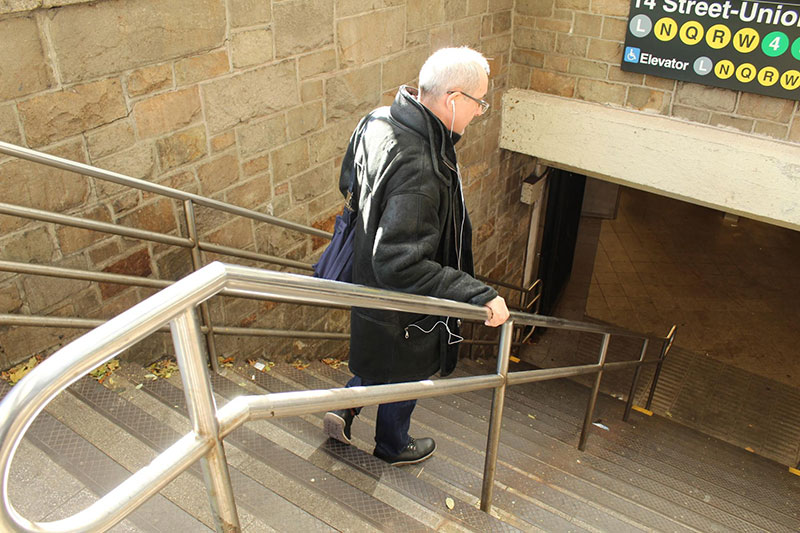By Nai’lah Taariq
December 4, 2017
Mihail Iordache is an older man, on the short side. His hair is becoming white, and the fine layer of facial hair he has is peppered with grays. His eyes, a deep grey, were nervous and twitching when entering the booth where my companion and I waited for him. He introduced himself, and asked about the purpose of my project. Early on he admitted to having a public speaking problem that stemmed from aggressive language teachers in his childhood, and coming to speak to me was a kind of closure. He began his story, but was coughing and complained of a dry throat. We stopped to buy drinks. Afterward, he dove into his narrative right away.
The whole time, top 40 pop music was playing loudly from overhead speakers. At first I thought that it ruined my audio, but throughout his talking, I found it almost humorous that he had made it through all these dangerous and amazing things, and he had found himself sitting in Panera Bread listening to Taylor Swift. In that way, I appreciated its presence. He had also begun to speak louder and share more details. By the end, I found him to be a pleasant man with artistic talent, who never loses hope for the future. This is his story, uninterrupted.
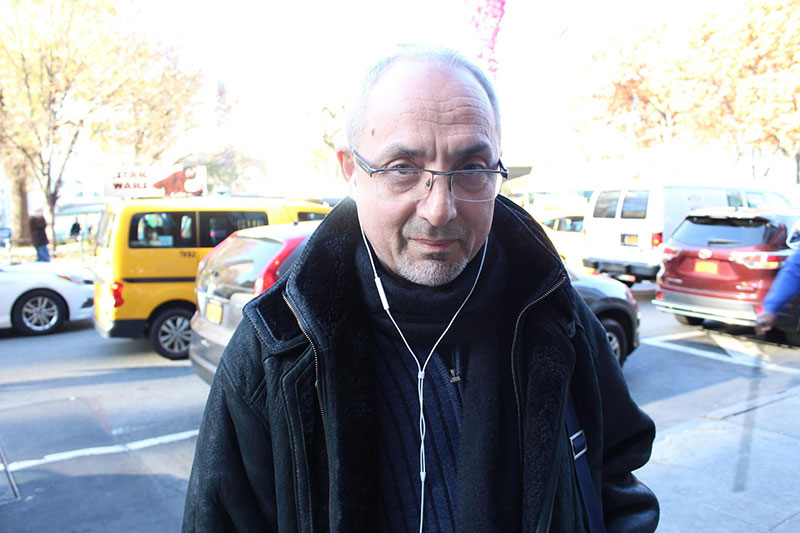
“Like I said, I would like to focus on the idea of challenge. And the key point in my life where— my life has changed because I took a step, or I challenged myself.”
“I first landed in Cleveland because a Lutheran church sponsored me. The Romanian community jumps in, introduces you, you go to church with people. So I met in this context a gentleman— he was probably in his sixties at the time, I was twenty five. He said, ‘I was a lawyer when the communists took over and I was put in jail for that one reason. I was lawyer. 16 Years in the labor camps.’ I was so fresh out of that communist system, it was hard for me to believe this. I was seeing a real person who was jailed for that reason only. He gave me a tiny book about an anti-Communist leader that ended up dead, obviously. A famous name in [the early period of] Romanian history. He carried my name, Mihail. A different last name. Kotoraneu. I was almost afraid to take that book with me. I still felt like I was in Romania. I did not have enough time to adapt to the freedom, where you can read what you want and you can put that book in your shelf and not be afraid that somebody is going to walk in and arrest you. Believe me, it may sound very weird, but I hid that book in my own apartment. I couldn’t just freely keep it because I heard that in that church there was one informant that was informing the Romanian government at the time about every individual that was going to that church. We’re talking 1982.”
“There was a lot of trouble in that time, the late seventies early eighties. And a lot of people wanted to leave [Romania] illegally at that time. I was a young man, of course I could wait for a Visa, but they were just meant to slow you down. Crossing the border, which was— you took a very very big chance to do that. So talking about challenge- the challenge to leave Theo country was terrifying because you knew you could end up being shot at the border, So that was a huge challenge. But the desire to leave and to make something of yourself, a future. Every body knew that America at the time was a symbol of freedom. A symbol of possibilities. A place you can get in work and dedicate yourself, and you could be something. And everybody wanted to escape the communists.”
At this point, Mihail is much more open. He is offering to speak louder, making sure my device is recording and giving permission for my companion to photograph him (he did not).
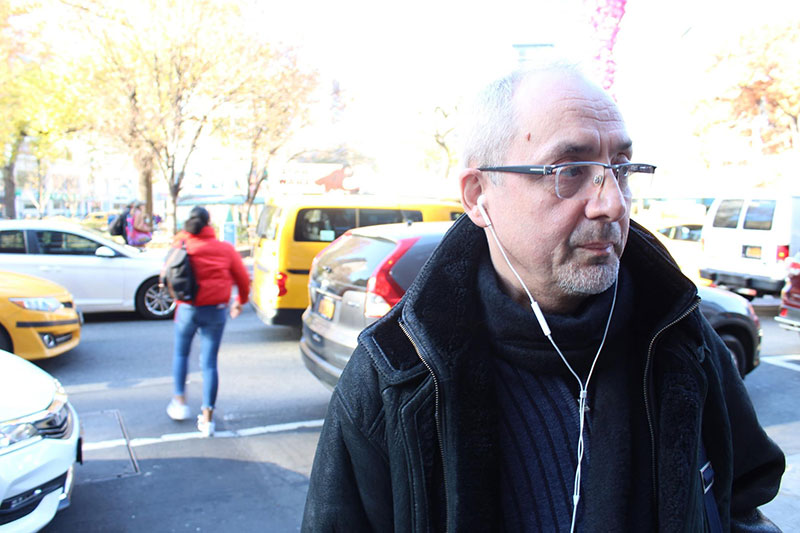
So got my first job at the Cleveland Museum of Art, while going to community college for English classes. I didn’t speak English at the time, and I worked there for a year as a security guard. You know being in Galleries. Everyday in a different gallery telling people not to touch.
I was searching for a college to go to. And I did apply to the school of art in Chicago, when I was in Cleveland. I did go for an interview. That was another challenge. I borrowed a car from my girlfriend at the time. It was a Ford Escort 1980. The day in early march when I had the appointment there was a big, big winter storm. I Drove through snow often times at ten miles an hour. I managed to get to Chicago after a long time. I got there a little bit late the next day. And the professor who welcomed me, said ‘I’m so shocked you got here, because you said you were going to drive.’ It was a long hard drive. She was incredibly friendly and welcoming. I took my portfolio— I took a lot of my art work, drawings. Rolled up in a big roll covered in plastic. That was my main piece of luggage. An anytime they wanted to search my luggage I had to open it and show that it was nothing illegal. She loved it. When it was over she came to me and she said, ‘Let me give you some cash. Because I know the circumstances you came from.’ So she gave me $120. I was surprised. She said, ‘When you come back in in the fall as a student, you going to give it back to me whenever you can.’ She said it was for the gas and whatever I need to go back. So I was meant to come back and move to Chicago and find a job which is what I did.
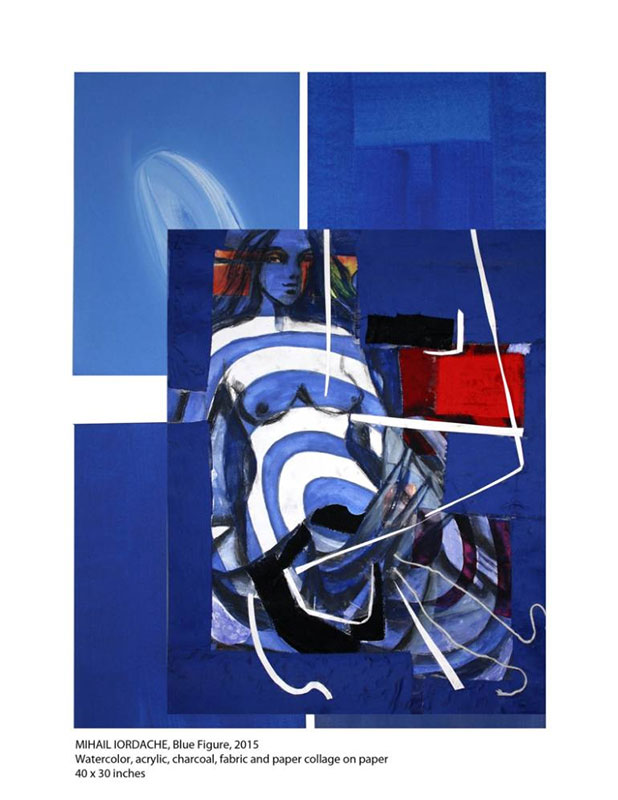
So meeting people like this, some key moments. They make a difference. At the time you don’t even notice. But looking back, people like this professor, who was a professor of painting and drawing. She took me under arms at the beginning because she knew I didn’t know the rules. She was always checking with me to make sure I was OK and understood things or needed help. She would fill out forms for me and taught me how the system works in the states. They loved my art. That was the only thing that carried me through. Key moments like this you meet someone who makes a difference. I had another professor who was an artist in Romania when I first moved to Bucharest after coming out of the army. That was also an enormous help in giving you tips on what to do and how to function. How to do good in school and what to do about everything that encompasses a student’s life in Bucharest. So anyway, I must say that it was a big eye opener for me that I got into what was then considered one of the best art schools in America. I loved it. It was a good way for me to enter back into the art world. It wasn’t easy by any means. I had to learn how to do freelance and work part-time, but I was doing it with all my heart because it was such a big deal to me at the time. It was a challenge but had the youth, the energy and the enthusiasm. Everything I was discovering was so new and so wonderful and too me it meant a great deal. So… the challenge was met with enthusiasm.
I discover that Freedom is wonderful but it comes at a price. You know, you have to learn how to live in freedom. The vast majority of people who came from that part of the world at that time when the government dominated everything, you had to follow. Here you had to learn. Actually, live in freedom but you have to learn the rules of living in freedom. The risks. The people who lived there for a while— the Romanians kept telling us ‘You can do whatever you want, but you can make good choices or bad choices.’”
